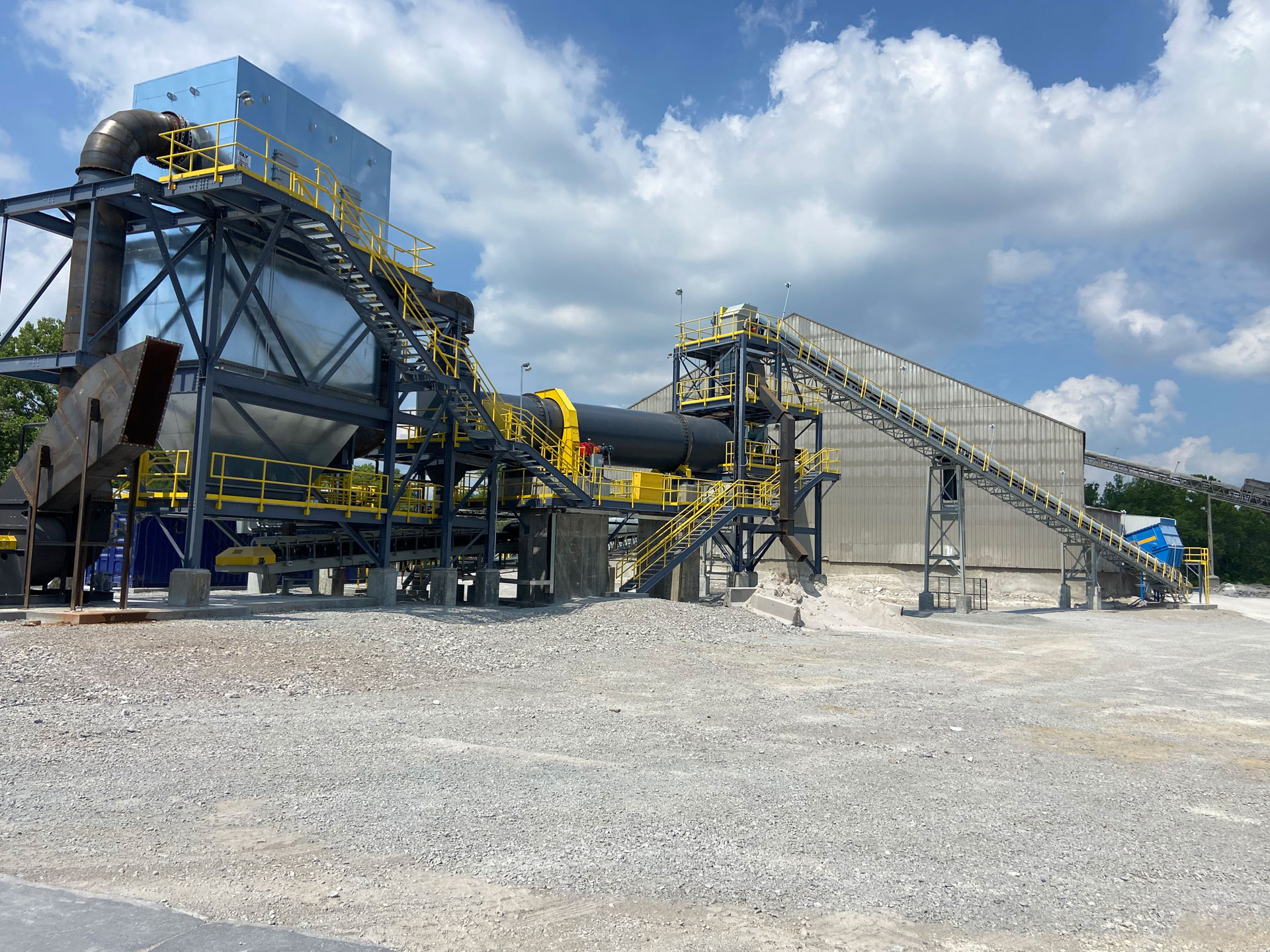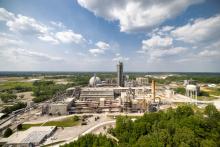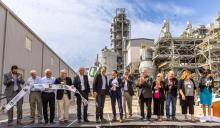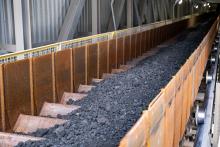
Following last year’s opening of its new state‐of‐the‐art cement plant in Mitchell, Indiana, Heidelberg Materials ceased portland cement production at its manufacturing site in Speed, Indiana, and invested in modifying the facility to produce slag cement from domestically sourced slag granules. Replacing a portion of conventional portland cement with slag cement in a concrete mix significantly lowers its environmental impact. The Speed site, which has an annual grinding capacity of more than 400,000 tonnes, also serves as a distribution hub for cement produced at the Mitchell plant as well as a broad range of specialty cementitious products.
The company recently supplied its first major project, the construction of a high-rise building in Indianapolis, with slag cement from the repurposed Speed plant. The project’s ready-mixed concrete supplier, Irving Materials, Inc. (IMI), incorporated 1,700 tons of slag cement in the concrete used for the structure’s foundation. Using slag cement in a concrete mix significantly lowers its environmental impact, and it also provides lower heat of hydration, improved durability, easier workability and higher long-term strength.
“We are excited to now have the ability to supply our customers with slag cement from our existing facility in Speed, Indiana,” Toby Knott, Vice President of Cement Sales for Heidelberg Materials North America’s Midwest Region. “With the growing acceptance of slag cement usage in publicly and privately funded construction projects, this is a great opportunity to enhance and strengthen our sustainable product offerings in this dynamic market.”
“Heidelberg Materials North America’s investment in the Speed facility is reflective of our commitment to supporting sustainable and resilient construction projects in the Midwest and throughout the U.S. and Canada,” said Toby Lee, President of the company’s Midwest Region. “It is also yet another milestone in our journey to significantly reduce our carbon footprint by 2030 and grow our portfolio of more sustainable products, technologies and customer-focused solutions.”
The adjustments made at the Speed plant reflect Heidelberg Materials’ strong commitment to achieving net‐zero emissions in North America. Recently, the company has been selected for funding of up to US$500 million by the US Department of Energy to advance industrial‐scale carbon capture, transport, and storage at its Mitchell cement plant.
At the Edmonton cement plant in Alberta, Canada, Heidelberg Materials is currently developing the world’s first full‐scale carbon capture, utilisation, and storage solution in the cement industry.
Heidelberg Materials follows an ambitious global climate strategy, aiming to generate 50% of its revenue from sustainable products that are either low‐carbon or circular by 2030. The company plans to achieve net‐zero emissions by 2050 at the latest.










